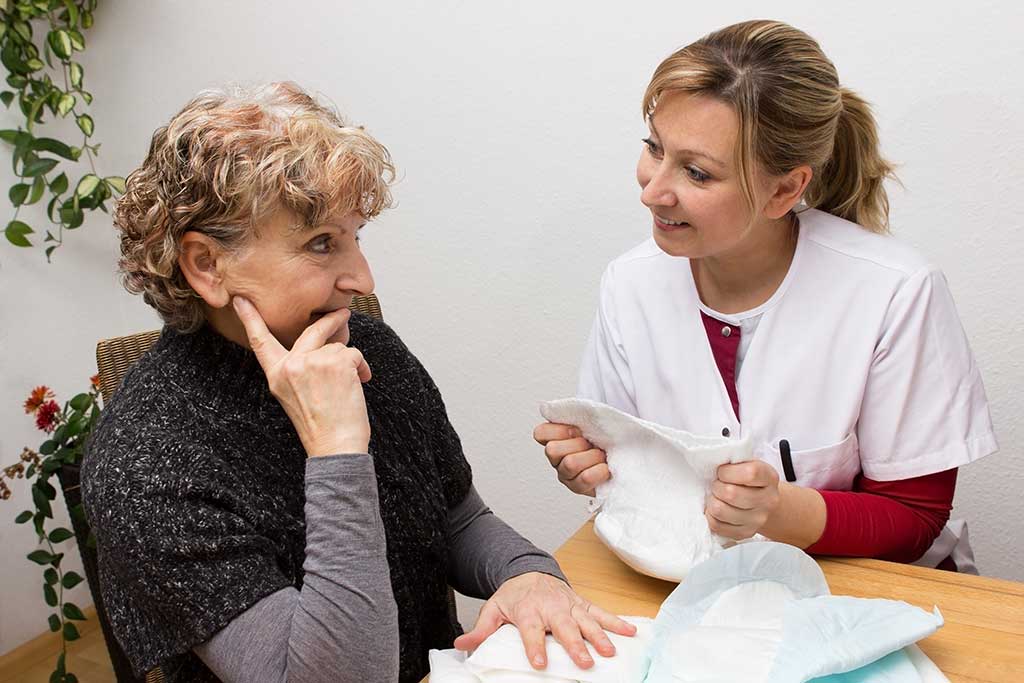Incontinence means being unable to control your bladder or bowels, which can be embarrassing and even frustrating at times. While this doesn’t happen overnight, it’s a problem that worsens over time, especially as you grow older. The good news is that there are many treatments available to help manage senior incontinence incidents and help seniors have a happier and healthier life while living in their homes longer. How can you address it?
Do Kegel Exercises
If you’re wondering what kegel exercises are, they’re simple exercises that you can do in private to strengthen your pelvic floor muscles. They can help if you have incontinence issues caused by weakened muscles, but they won’t treat any underlying condition causing your symptoms. Most people say they find that doing regular kegel exercises makes their symptoms less severe. Even if they don’t completely stop involuntary urine leakage, Kegels can reduce how much it happens and how often it happens for many people.
Try “Timed Voiding”
If you or your loved one is dealing with incontinence, try to time urination to avoid involuntary incidents. That means taking less frequent trips to the bathroom but also keeping a closer eye on when you go. For example, if it normally takes 10 minutes for your body to feel like it has to pee, only venture out at that point rather than five minutes earlier or later. This can take some trial and error—and could even lead to peeing on yourself while trying it—but over time should help avoid surprises! If timed voiding doesn’t work for you, look into specialty diapers or adult underwear designed for bladder control.
Maintain A Healthy Weight
While it may seem counterproductive, being overweight can increase your risk of incontinence. Excess weight puts more pressure on your bladder, making it harder to get to a bathroom in time—and causing unnecessary damage along the way. Losing just 10% of your body weight through a healthy diet and exercise can decrease urinary symptoms by up to 35%. If you’re experiencing senior incontinence issues, talk with your doctor about ways you can lose weight safely and effectively.
Quit Smoking
If you’re trying to manage incontinence, quitting smoking is a great place to start. The nicotine in cigarettes can cause your bladder and urethra to become irritated. Quitting can ease other physical ailments as well. But if you think you’ll have trouble staying off cigarettes, it’s a good idea to have nicotine patches or gum on hand so that you have alternatives for those tough first few days without a cigarette. Even better: choose an alternative that doesn’t contain nicotine, like e-cigarettes or gum with non-nicotine fillers.
Reduce Alcohol And Caffeine Intake
Studies have shown that these are major contributors to incontinence in our loved ones. While alcohol is known to reduce feelings of anxiety and embarrassment, it also reduces blood flow to all parts of your body, including your bladder. Lowering or cutting out alcohol consumption can be an easy first step if you’re looking for ways to cope with incontinence episodes. Caffeine has similar effects; even if you don’t drink coffee or soda (or whatever caffeinated beverage is most prevalent in your area), caffeine is present in everything from teas and chocolate bars to some painkillers like Tylenol.
Treat Constipation
The best way to deal with constipation is to prevent it. The best foods for preventing and treating constipation are high-fiber foods like fresh fruits, vegetables, and whole grains. For those loved ones who suffer from chronic bowel issues, you might want to consider discussing your issue with your doctor. While there is no cure for chronic constipation, your doctor may be able to give you suggestions on how to deal with it at home and which over-the-counter medications may be helpful.







